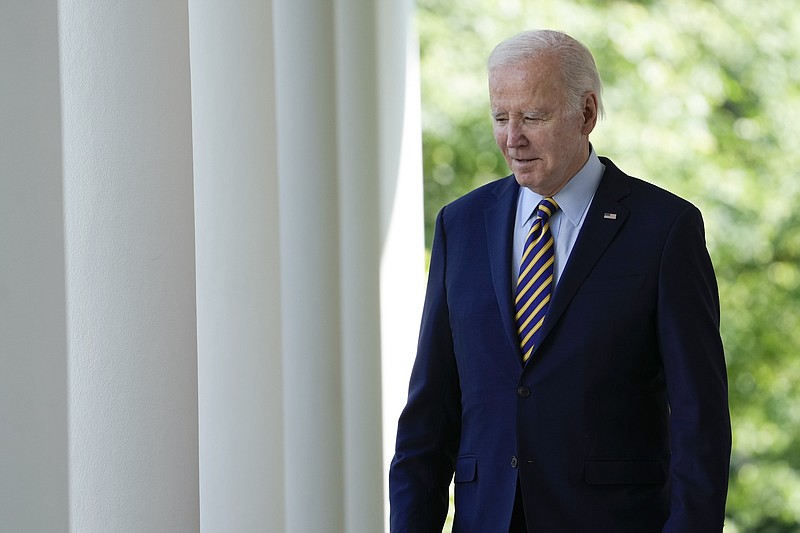According to a recent poll conducted by the Democratic firm Blueprint, only 5% of Americans say that Joe Biden is "far more conservative than me." Ask yourself, what percentage of Democratic activists, liberal TV hosts, White House staffers, liberal think tankers and donors believe that Biden is "far more conservative" or even "somewhat more" conservative than they are? I'd be shocked if the number wasn't closer to 90%.
In other words, the elites who push the agenda of the Democratic Party actually believe that Biden is a fairly conservative, old-school centrist Democrat, while even most Democratic voters do not.
But don't go by just one poll. In their new book "Where Have All the Democrats Gone," the liberal intellectuals Ruy Teixeira and John Judis argue that the Democratic Party has been led astray by what they call a "shadow party" of very progressive activists that can't see through the bubble they live in.
The book is partly a corrective to their hugely influential — and misunderstood — 2002 book "The Emerging Democratic Majority," in which they argued that demographic changes would give Democrats the building blocks for an enduring majority to replace the old dissipating FDR coalition. That book seemed prophetic in 2006 and 2008, when Democrats had massive success marshaling the "coalition of the ascendant." Their prediction has not fared well since.
In 2010, Obama's coalition evaporated. Democrats lost 63 House seats. Obama won re-election in 2012, but his coalition shrank from 2008 and the GOP held onto the House. In 2014, the Democrats lost nine Senate seats and 13 in the House. And in 2016? Well.
The key to these losses, Teixeira and Judis explain, was the steady exodus of the white working class.
They focus on four issues that tend to turn off more voters than they attract — at least in the way Democrats frame them: race, immigration, transgenderism and other forms of what they call "sexual creationism," and climate change.
Their point is that by prioritizing extreme framing on these causes to the exclusion of the Democrats' traditional economic populism led millions of white working-class voters to feel like the Democrats no longer cared about people like them. And now, there's evidence that some of the non-white working class is going with them.
For instance, "defund the police" was a compelling idea to the shadow party, but it has little appeal to mainstream voters of any race, who may have problems with police abuses but have little tolerance for crime. Fewer than 1 in 5 African Americans supported the cause.
Obsessed with the intraparty fight, waged largely in the media, Democratic activists tend to treat any issue "hyped" by the right as illegitimate. The border crisis may not be the threat Tucker Carlson describes, but that doesn't mean it's not a crisis.
Teixeira and Judis are persuasive that a Democratic Party that tries to find common cause with the largest voting bloc(s) in America is going to be better for the party and the country than one that's focused on identity politics and sloganeering about "white supremacy." The fact is, non-college-educated white people make up about 44% of the electorate, and about two-thirds of registered voters are white.
There's a lesson here for both parties, because both are institutionally weak and easily manipulated by their shadow parties. Convinced that their existing bases are all they need and any effort to broaden their appeal by watering down their agendas is capitulation to the enemy, they've concluded it's better to rule with a narrow, vulnerable majority than to govern with a broad one.
But the surest way to ensure lasting political progress isn't to win a single election, it's to build a durable majority. That means serving voters' interests, not dictating to them while insisting that anyone who disagrees with you is a racist — or as Donald Trump says, vermin.
